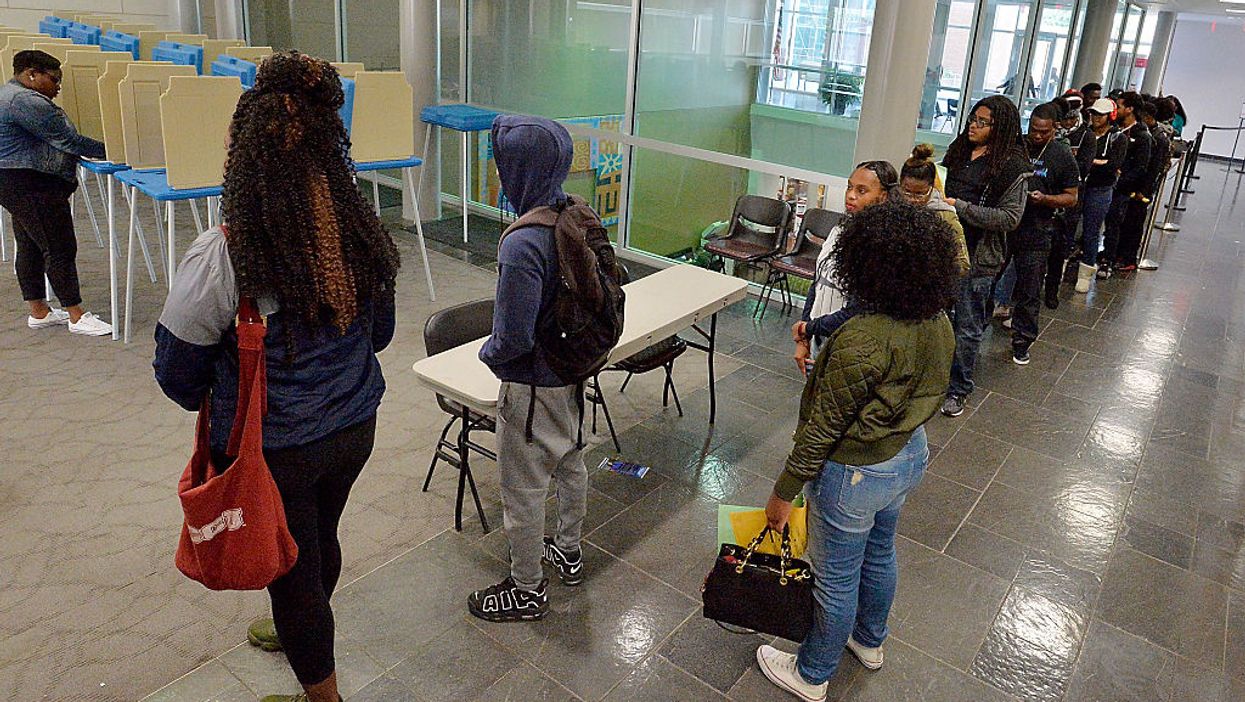Voting rights advocates have won a singular victory in their multifaceted lawsuit to force more permissive voting regulations in battleground North Carolina this fall.
People whose absentee ballots get rejected must be notified and given a chance to challenge the disqualification and correct any mistakes, federal Judge William Osteen ruled Tuesday. But he also concluded that fears the coronavirus will sicken voters at the polls, or depress turnout, are not enough to make him order more widespread easements in the state's election laws.
His decision, which would be tough to successfully appeal in the three months before Election Day, gives some clarity on the election rules in one of the most politically pivotal states — where the battles for its 15 electoral votes as well as a Senate seat both look like tossups.
But Democrats and others pushing for maximum turnout in the state, especially in Black communities, say they will benefit from the judge's order to permit so-called ballot curing and two other absentee voting easements approved by the General Assembly last month: reducing, from two to one, the number of witness signatures on the ballot envelope, and allowing voters to apply for mail ballots online.
Nineteen states require voters be notified of a missing signature or a signature discrepancy and allowed a do-over. About half the states allow online or email applications for absentee ballots. Fewer than a dozen states require a witness signature on such a ballot.
In his ruling, Osteen wrote that while the evidence presented during a two-day hearing last month was not strong enough to warrant his more assertive intervention, officials in Raleigh "would be sorely mistaken" in concluding the concerns raised in the lawsuit could now be discounted.
The suit was filed against the State Board of Elections, GOP Secretary of State Stella Anderson and other officials by Democracy North Carolina and the League of Women Voters. They also wanted to make the state allow new voters to register closer than 25 days before the election, one of the earliest deadlines in the country; set up drop boxes for absentee ballots; ease restrictions on assisting people in marking and returning such ballots; and drop the remaining witness requirement.
The Southern Coalition for Social Justice, which helped press the lawsuit, said the ruling to allow the corrections on absentee ballots could preserve the franchise for an estimated 115,000 North Carolinians — a number based on past rejection rates and the expectation that two of every five votes in the state will be cast by mail this fall, 20 times the number two years ago.
Polling shows former Vice President Joe Biden statistically tied with President Trump in the state. The last Democrat to carry it was Barack Obama a dozen years ago — and by just 18,000 votes. And Republican Sen. Thom Tillis, who's being challenged by former Democratic state Sen. Cal Cunningham, won his seat six years ago by just 45,000 votes.



















 A woman prepares to cast her vote on May 4, 2025 in Bucharest, Romania. The first round of voting begins in the re-run of Romania's presidential election after six months since the original ballot was cancelled due to evidence of Russian influence on the outcome. Then far-right candidate Calin Georgescu surged from less than 5% days before the vote to finish first on 23% despite declaring zero campaign spending. He was subsequently banned from standing in the re-rerun, replaced this time round by George Simion who claims to be a natural ally of Donald Trump.Getty Images, Andrei Pungovschi
A woman prepares to cast her vote on May 4, 2025 in Bucharest, Romania. The first round of voting begins in the re-run of Romania's presidential election after six months since the original ballot was cancelled due to evidence of Russian influence on the outcome. Then far-right candidate Calin Georgescu surged from less than 5% days before the vote to finish first on 23% despite declaring zero campaign spending. He was subsequently banned from standing in the re-rerun, replaced this time round by George Simion who claims to be a natural ally of Donald Trump.Getty Images, Andrei Pungovschi
Trump & Hegseth gave Mark Kelly a huge 2028 gift